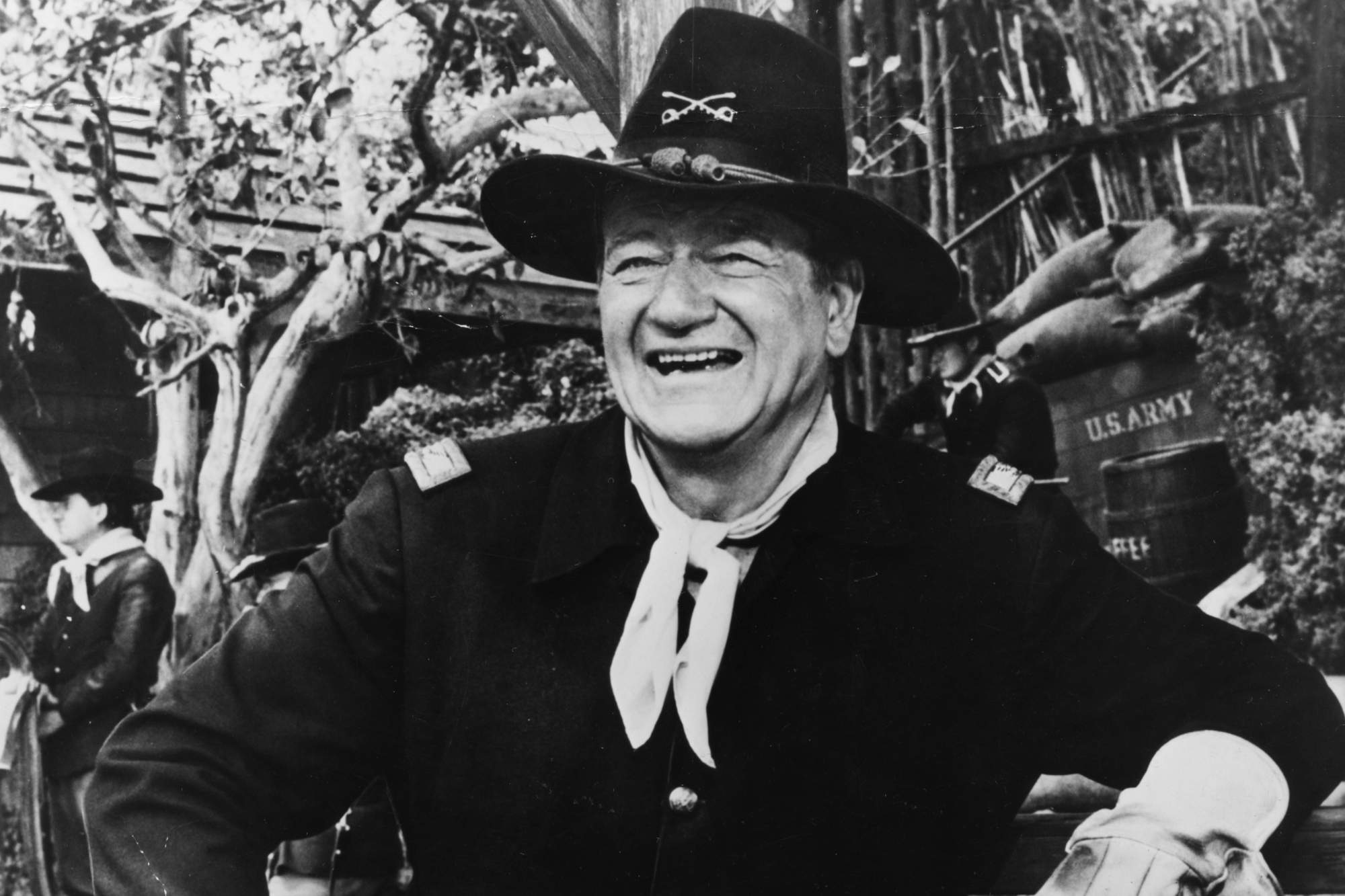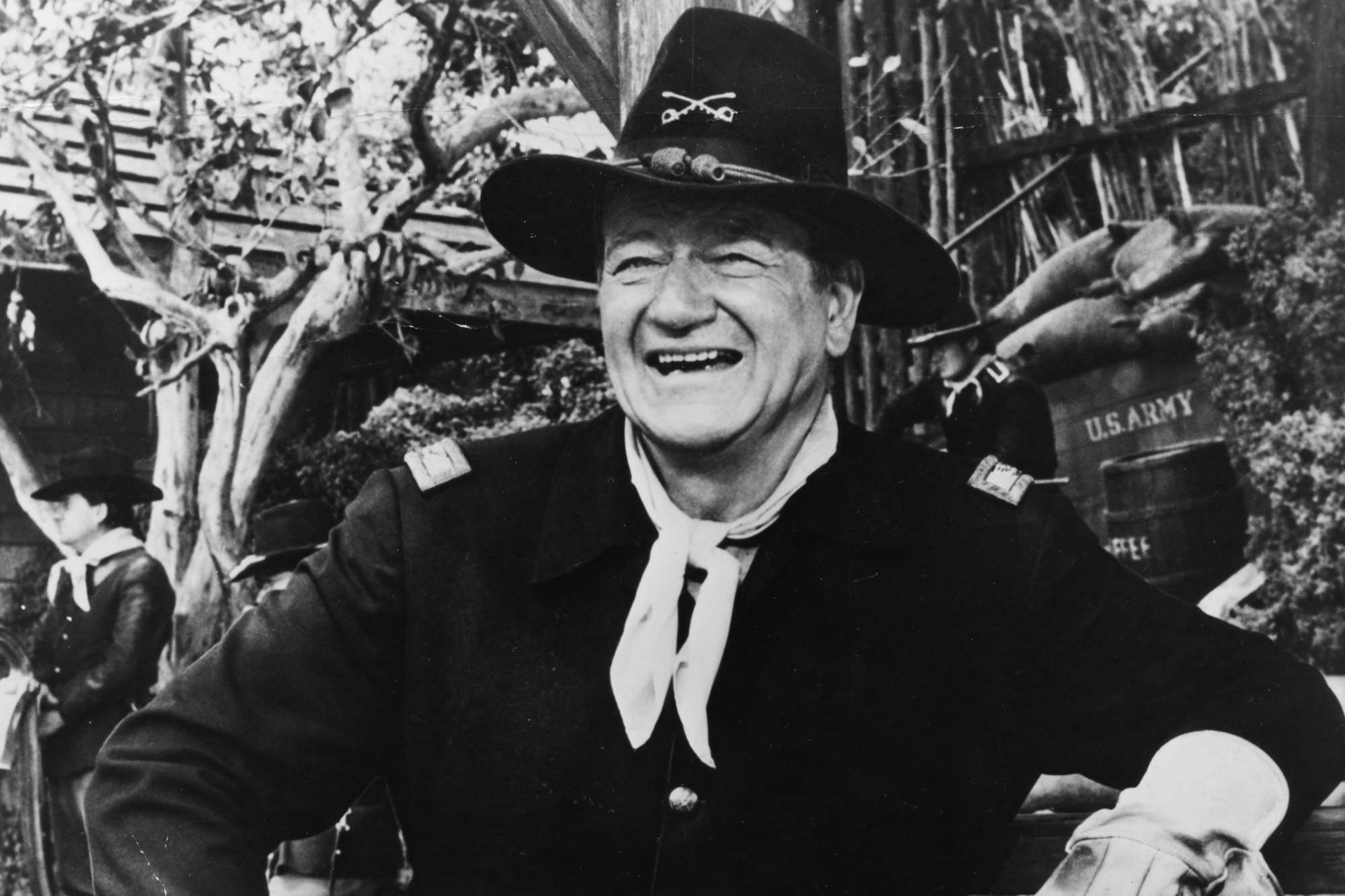
John Wayne Thought 1 Oscar-Nominee ‘Lost His Audience,’ Ruined His Public Image
Movie star John Wayne was primarily an actor, but he had no shortage of thoughts regarding public image. He held his own in high esteem, but he also viewed his peers through a similar lens. Therefore, this was one of the methods that he used to establish his opinion about some of those in Hollywood. Wayne thought an Oscar-nominated actor ruined his public image for the sake of a single movie role.
John Wayne carefully crafted his public image

Beyond the cultural impact that Wayne had with his feature films, he also became a cultural icon thanks to the masculinity he exuded and his morality. His image ultimately aligned with America, becoming one and the same, as he pushed patriotism through his public appearances and his feature film performances.
Wayne very carefully crafted his public image, and he refused to tear that down with role selection. As a result, he turned down many significant projects over the course of his career, including High Noon and Dirty Harry. Wayne wanted to display strength as a capable hero with morals on the silver screen, who wasn’t afraid to put his life on the line for the most important things in his life, including family and patriotism.
John Wayne thought Robert Montgomery ruined his public image
Scott Eyman wrote about the movie star and his public image in John Wayne: The Life and Legend. He frequently compared himself to Robert Montgomery, who transitioned his acting career from comedies to dramas. He made a transition to a much more serious role in 1937’s Night Must Fall.
The story follows a wealthy widow named Mrs. Bramson (Dame May Whitty), as she discovers that her maid’s (Merle Tottenham) fiancé (Montgomery) is distracting her from her work duties. Therefore, she decides to summon him, who charms her to allow him to work for her. However, his motives are suspicious.
“He won an Oscar, but he lost his audience,” Wayne said. “He was wonderful in the film, but he fooled the people who had been going to his movies because he was ‘a nice, bright young kid.’ Suddenly they said, ‘No, he’s a dirty, miserable killer, a maniac.’ [Audiences] become accustomed to you as an actor as they would a friend, and … you can surprise them, but you can’t fool them.”
However, Wayne was mistaken. Montgomery didn’t win the Oscar. Rather, he was nominated and lost it to Spencer Tracy in Captains Courageous. Additionally, Eyman wrote that the Western star was much more upset about Montgomery’s role than the general public.
John Wayne became a symbol of conservative politics
Wayne had a public image that extended far off the silver screen. Against the advice of his team, he involved himself in politics, rather than keeping his thoughts to himself. He was known for holding conservative political beliefs, even though he considered himself a liberal at one point.
The Western movie star was for the Vietnam War, as demonstrated by The Green Berets, which he directed himself. Additionally, he became closely associated with the Republican Party, and his problematic interview in Playboy continues to haunt his legacy to this very day.


